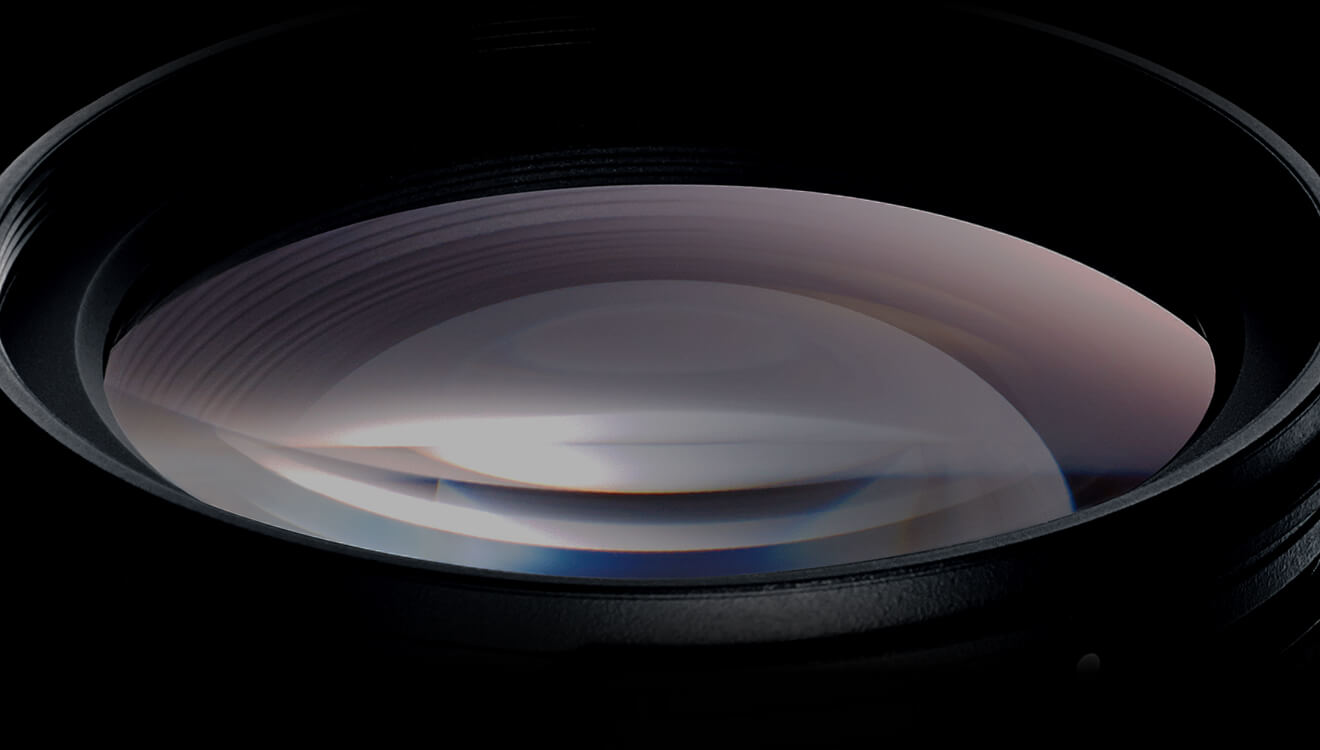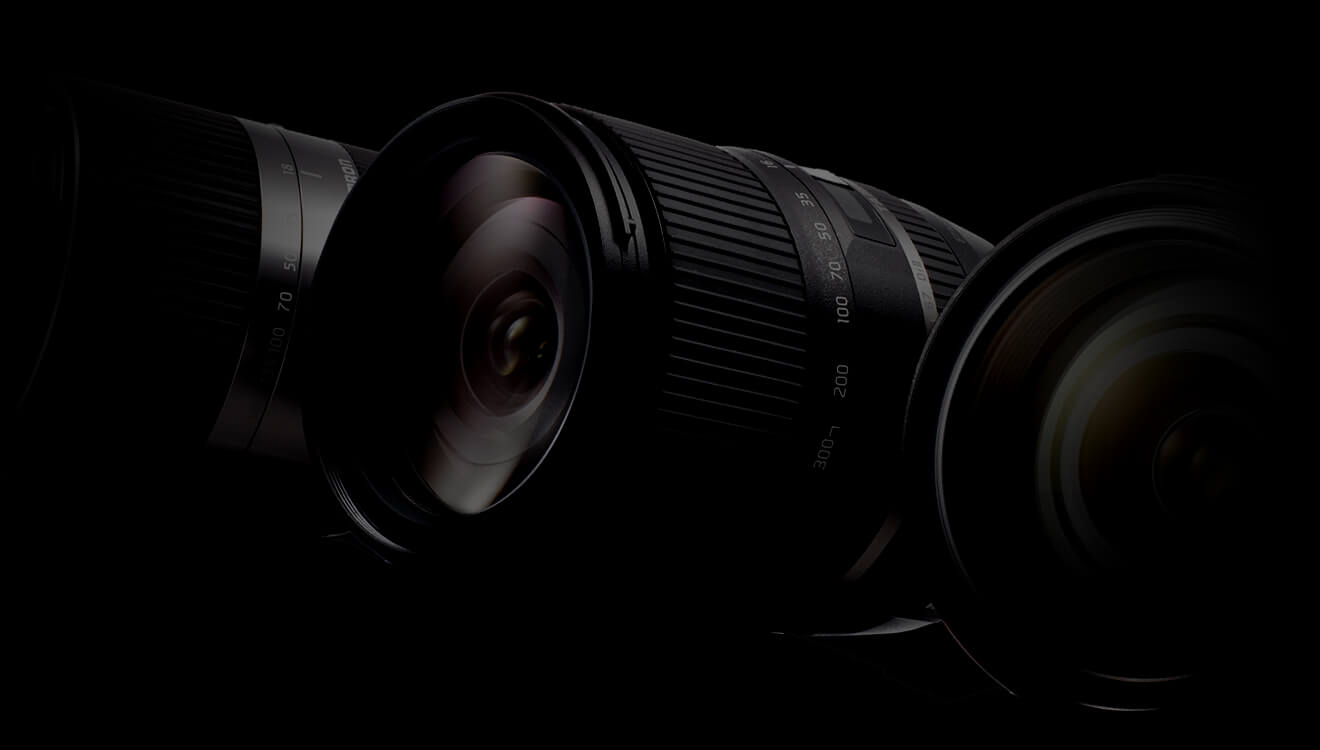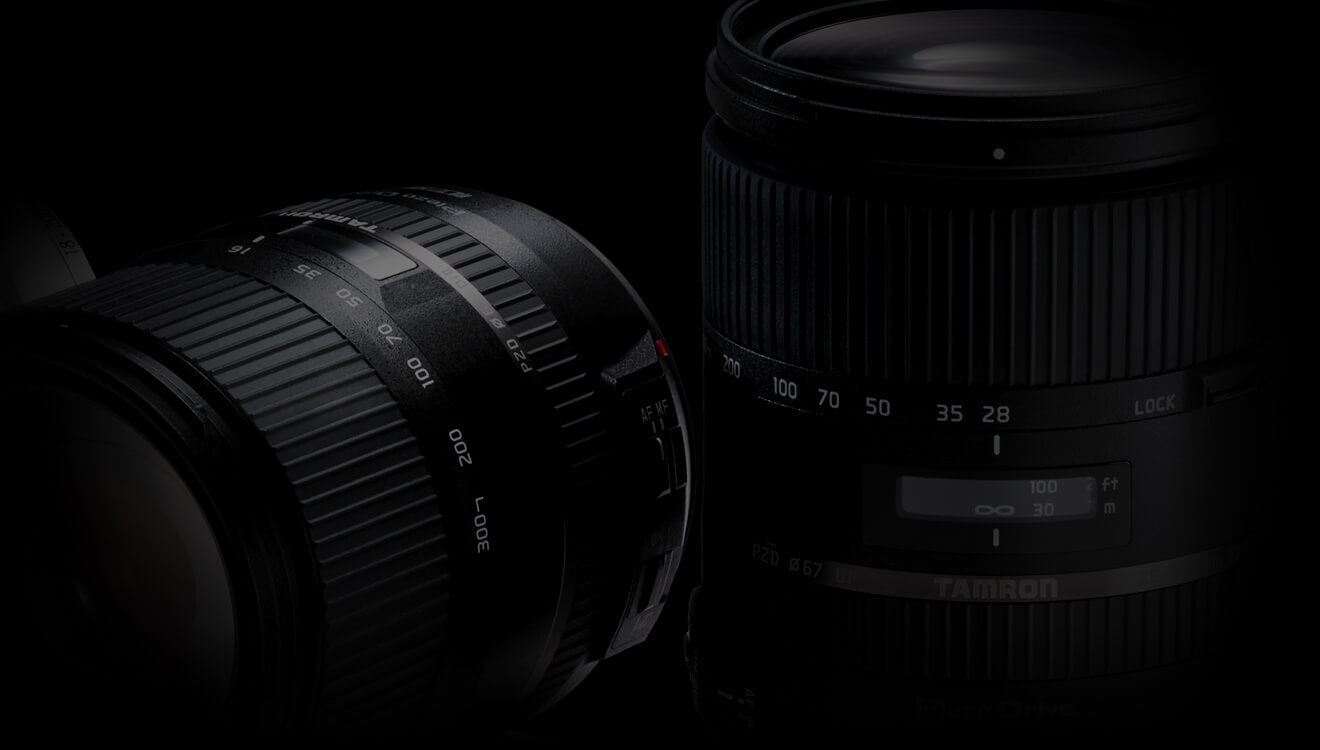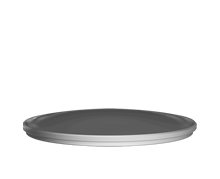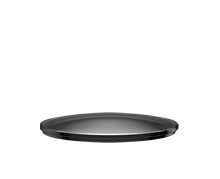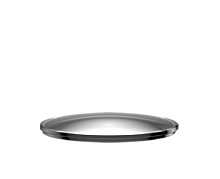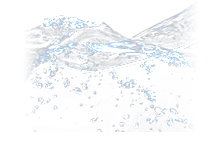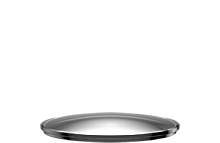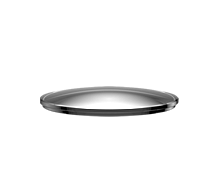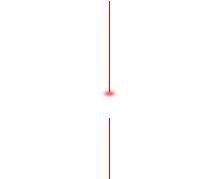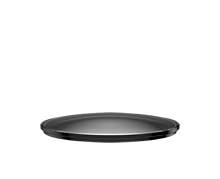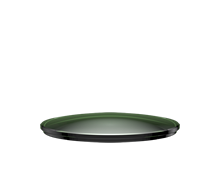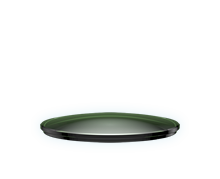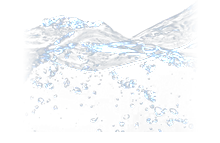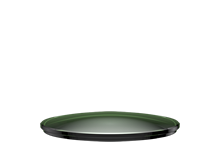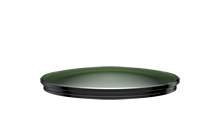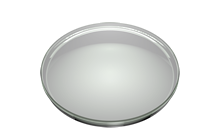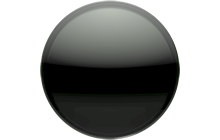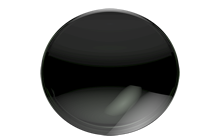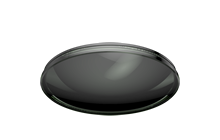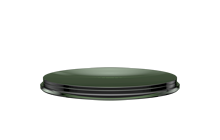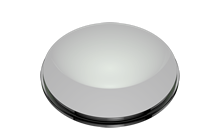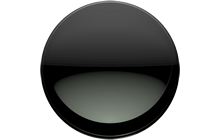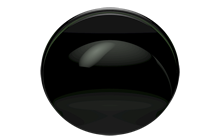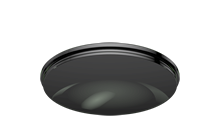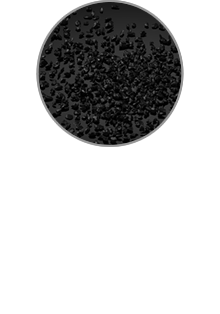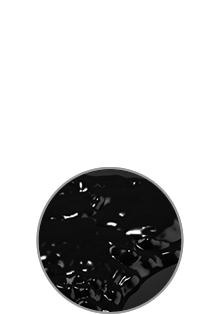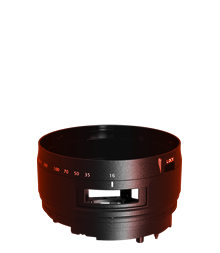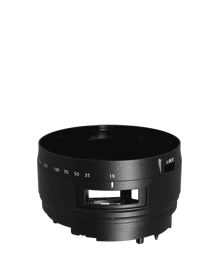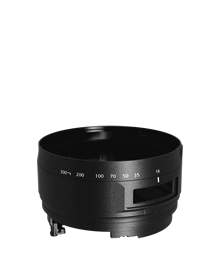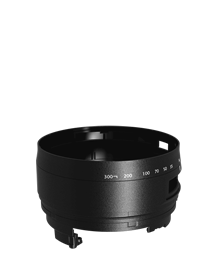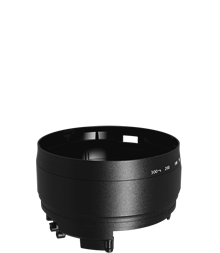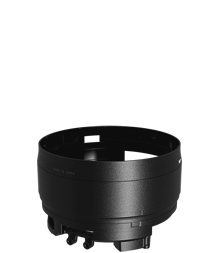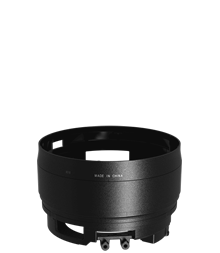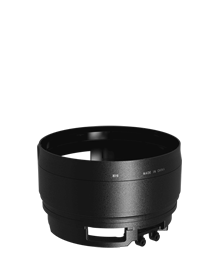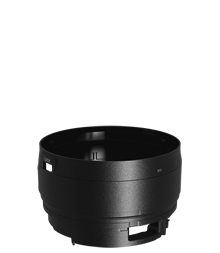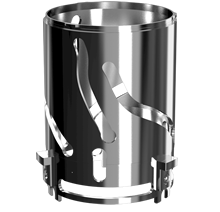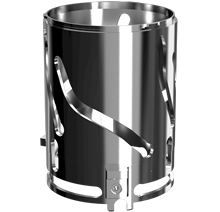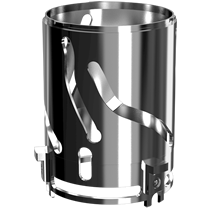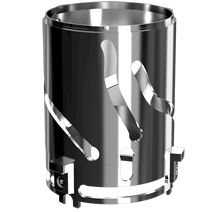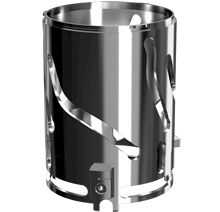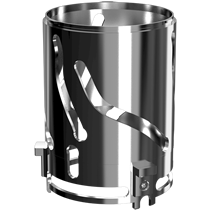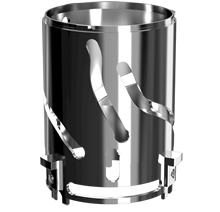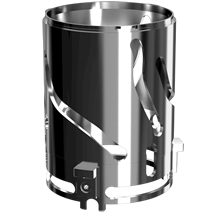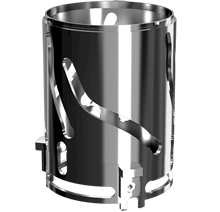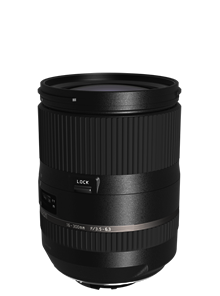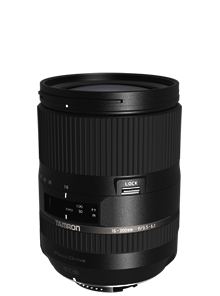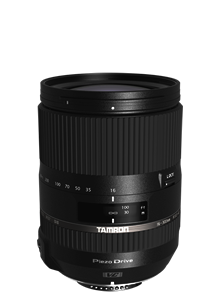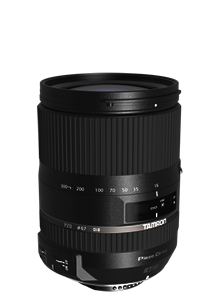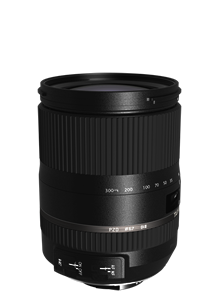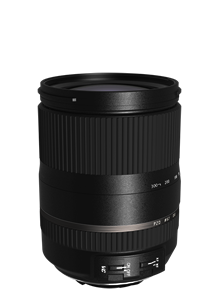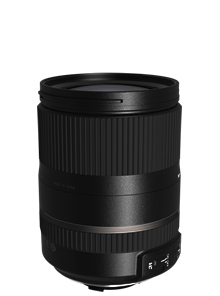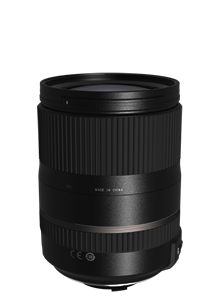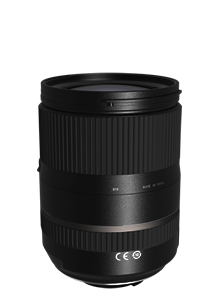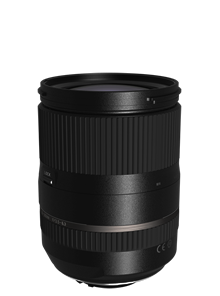Glass material procurement
Glass materials formed by pressing or grinding are procured from material vendors.
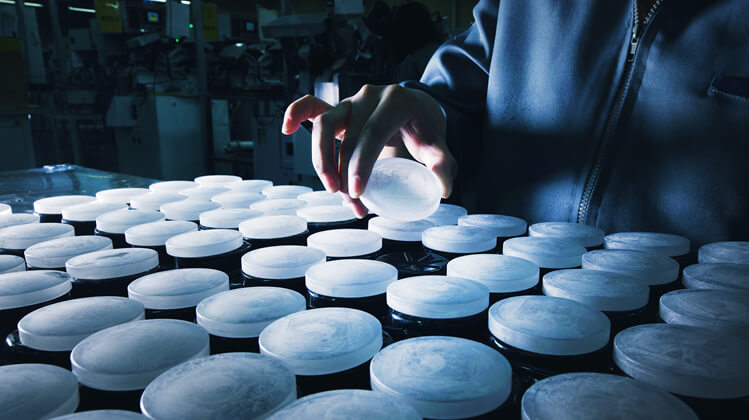
Coarse grinding
Glass materials are ground to designated profiles using coarse grinders.
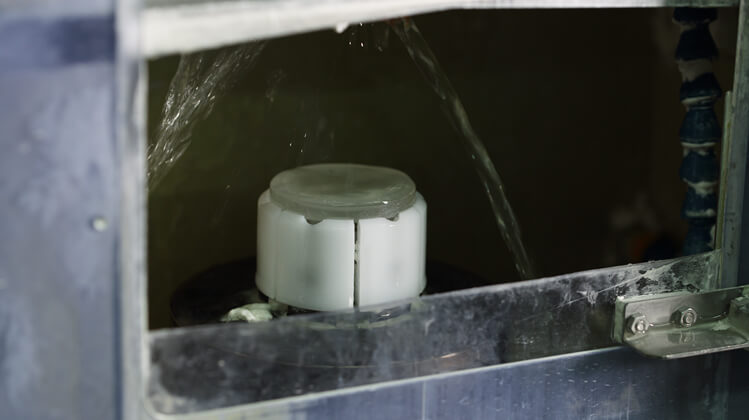
Fine grinding
After coarse grinding, lenses are fine-ground into their final geometries.
Coolant is circulated to control friction induced heat.
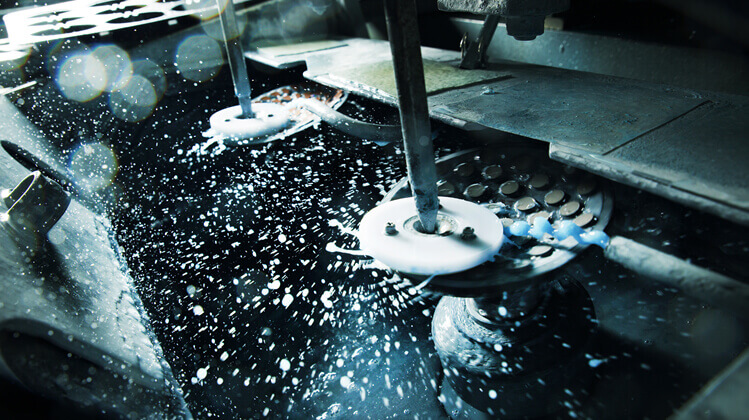
A lens after fine-grinding
The transparency of lens elements considerably improves after fine-grinding.
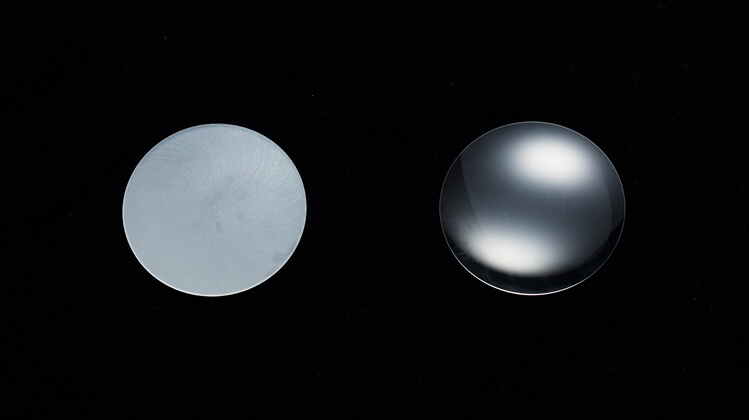
Polishing
Lenses are meticulously polished by flowing a dedicated abrasive compound onto a polishing disk that rotates at high speed.
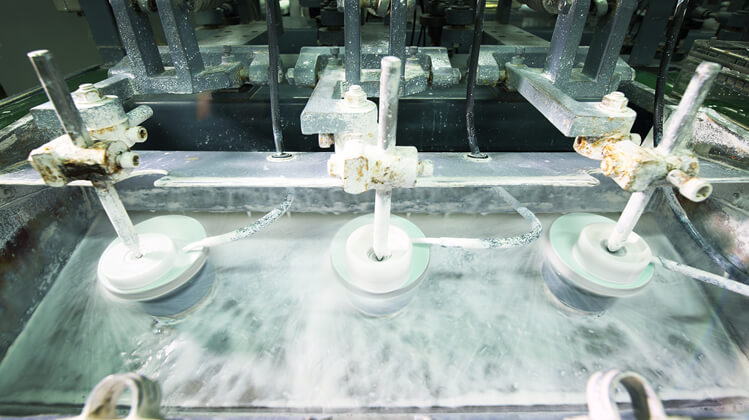
Cleaning
Residual abrasives and particles are removed from the elements by immersing them in chemicals, cleansing liquids and purified water.
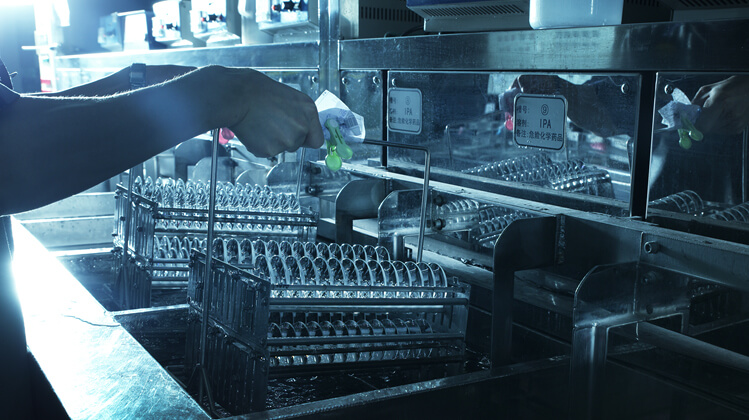
Inspection process
The accuracy of the elements is inspected following polishing and cleansing.
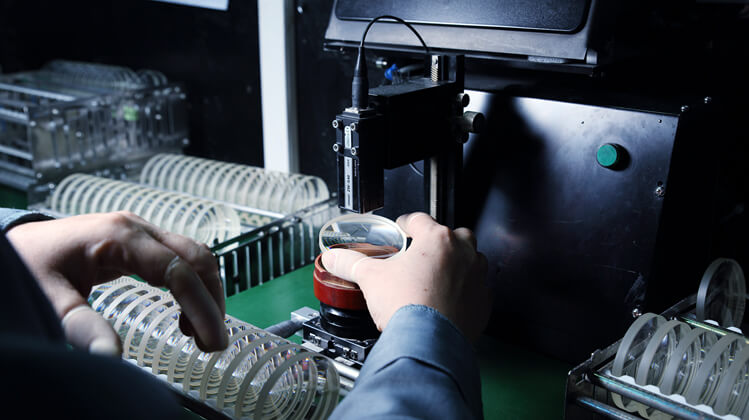
Coating (loading into a chamber)
A batch of elements is placed on an umbrella-shaped dome and transferred into a high-vacuum coating chamber in a clean room environment.
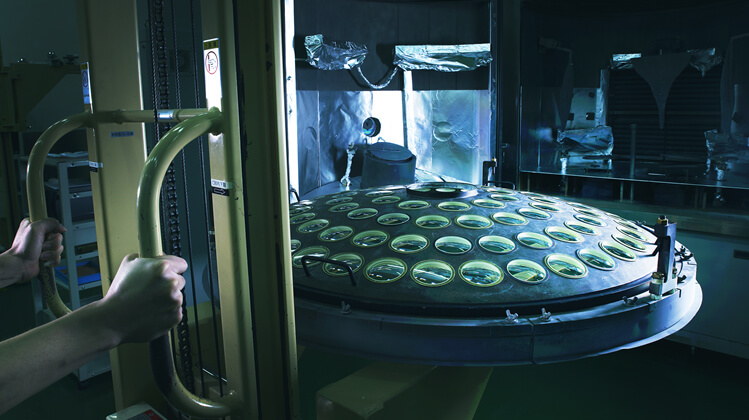
Coating (vacuum deposition)
By applying a high-voltage current within the chamber, chemicals are vaporized or sputtered and then deposited on to the elements.
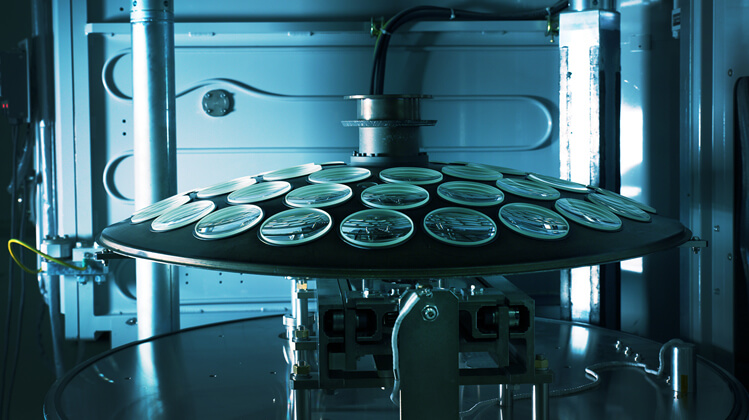
Centering
The circumference of each element is ground into a perfect circle relative to the optical axis.

Cleaning
Residuals from the polishing process are removed using ultrasonic cleaning equipment. After cleaning, elements are transferred to an assembly line.

Cemented lens elements (Bonding)
Some of the cleaned elements proceed to a bonding process. By bonding elements of different profiles and optical properties, improved optical characteristics can be delivered.
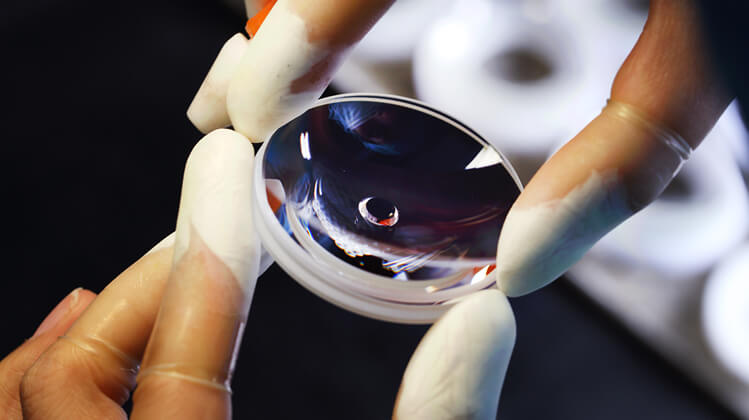
![]()
Engineering plastic material
Resin pellets are used as the raw material for plastic components. The blending ratios differ by component.

Metal molds and mold injection machines
Heated and melted plastic material is injected into metal molds that are installed in injection machines.

Injection molded components
Cooled and hardened components are removed from injection cavities by a robotic arm and placed in order on a carrier tray.

Painting
Exterior components such as various rings and lens-hoods are painted for functionality improvement and enhancement of their cosmetic appearance.

Printing
Pertinent characters figures and index lines are printed on painted surfaces.

Annealing
Printed components are thermally treated to improve fixation.

Inspection
Painted and printed plastic components are inspected for uneven coloring and deformation, and then transferred to an assembly line.

![]()
NC lathe
Procured aluminum die-cast materials are machined using NC lathes.

Metal machining
Using NC lathes, the surface of the materials is machined to meet the designated geometric precision.

Annealing
Before grooves are cut into the components, annealing is applied to prevent deformation.

Groove cutting
Necessary holes and grooves are cut in the barrel components.

Measurement
Geometric profiles and dimensions of each component are inspected by high-precision measurement equipment before being transferred to an assembly line.

![]()
Sub-assembly line: Aperture unit
Diaphragm blades and other components are assembled into an aperture unit.

Sub-assembly line: VC (vibration compensation) unit
TAMRON’s proprietary VC (vibration compensation) unit consists of multiple components including sensors, an optical element, as well as magnets and other electronic parts.

Sub-assembly line: AF actuator
After assembly, each AF actuator is inspected and active drive performance qualified.

From the sub-assembly line to the main-assembly line
All components including individual modules, cam barrels, main barrels and lens elements come together at main assembly lines. Here, as many as 250 components are assembled to produce one lens.

MTF testing
The performance of each fully-assembled lens is thoroughly inspected using a MTF (Modulation Transfer Function) tester.

External visual inspection
After a lens has passed all inspection processes it undergoes a final test at an exterior inspection station prior to being transferred for packaging and shipping.

Shipping
Packaged lenses are shipped to customers around the world.

![]()
